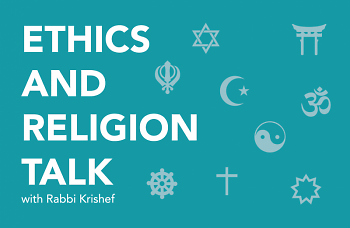[Note: Next week, we’ll address the consequences of Vaughn’s question as it related to the dissolution of marriage.]
The Reverend Colleen Squires, minister at All Souls Community Church of West Michigan, a Unitarian Universalist Congregation, responds:
“We believe marriage is a covenantal relationship between two consenting adults. A covenant is very different from a contract. Once one party breaks a contract the contract is null and void. A covenant is more of a promise to stay in relationship with one another through thick and thin. We understand that we are human, and we will at times come up short in living up to our promises to one another. Both spouses remain in relationship, one holds onto the covenant and the other works to rebuild the trust or repair the heartache they may have caused. The key to understanding a covenant is to understand that at times because we are human, we may fall short. Marriage is a very human thing and therefore not divine as the question implies.”
The Rev. Sandra Nikkel, head pastor of Conklin Reformed Church, responds:
“Yes, marriage is a divine design. God intended it to reflect the kind of relationship that he wants to have with us--his Church (That's why the Church is often referred to in the Bible as the Bride of Christ). Ephesians 5 gives us guidelines for the roles and responsibilities for the husband and for the wife. But these roles and responsibilities are to reflect the love, care, and inter-submission that already exist within the Trinity--Father, Son, and Holy Spirit. So in Verse 22 when it calls wives to submit to their husbands, it specifies, as unto the Lord. Understanding that the Lord is not an abusive Being will help us to know that God never expected us to submit to abuse or neglect in a marriage. Think about this from a woman's perspective: Who would find it hard to submit to a husband that does what verse 25 says: ‘Husbands, love your wives, just as Christ loved the church and gave himself up for her.’ Listen up! Christ serves, protects, and loves his church. Christ's love for his church is pure. holy, and sacrificial. Unless a husband is loving his wife in the same way, he has no biblical basis to expect sweet submission from his wife.”
Father Michael Nasser, who writes from an Eastern Christian perspective and is Pastor of St. Nicholas Orthodox Christian Church, responds:
“St. Paul echoes Christ’s teaching that marriage is the reflection of the holy relationship between Christ and His Church. We Orthodox Christians therefore see marriage as not only Divine in nature, but holy and its goals and expression. For those who enter into marriage, it is a crucial part of our salvation, as each spouse is called to sacrifice and place their spouses above themselves. This loving sacrifice makes us more like Christ, who is divine, and brings us closer to Him as the source of life.”
Father Kevin Niehoff, O.P., a Dominican priest who serves as Adjutant Judicial Vicar, Diocese of Grand Rapids, responds:
“Simply put, yes, for Catholics, marriage is a divine thing. Let me more formally share with you the definition of marriage as found in the 1983 Code of Canon Law. ‘the marriage covenant, by which a man and a woman establish between themselves a partnership of their whole life, and which of its own very nature is ordered to the well-being of the spouses and to the procreation and upbringing of children, has, between the baptized, been raised by Christ the Lord to the dignity of a sacrament.’
“The sacrament of marriage, raised by God to this level, is an act that Catholic Church takes most seriously. Further, it is the man and the woman who confer the sacrament… NOT the priest or deacon. The latter is only a witness to the sacramental bond. Therefore, the Catholic Church teaches that the bond created by the man and woman is permanent and may never be revoked.”
My response:
The first chapter of Genesis describes the creation of the first human being as both male and female. The next chapter describes God’s search for a partner for the male human, Adam. Ultimately, God creates Eve from Adam to be that partner. From this, I understand that human beings were created to be in a sacred partnership with another. A third or fourth century C.E. rabbinic story illustrating Jewish theology, called a midrash, imagines that God spends all of God’s time since creation partnering human beings, and that doing so properly is as difficult as parting the Reed Sea. So I suppose that makes marriage divine! I also understand, incidentally, that the human sexual orientation is not always directed towards the opposite sex, and that all human beings deserve the chance to be in partnership with another.
This column answers questions of Ethics and Religion by submitting them to a multi-faith panel of spiritual leaders in the Grand Rapids area. We’d love to hear about the ordinary ethical questions that come up in the course of your day as well as any questions of religion that you’ve wondered about. Tell us how you resolved an ethical dilemma and see how members of the Ethics and Religion Talk panel would have handled the same situation. Please send your questions to [email protected].
The Rapidian, a program of the 501(c)3 nonprofit Community Media Center, relies on the community’s support to help cover the cost of training reporters and publishing content.
We need your help.
If each of our readers and content creators who values this community platform help support its creation and maintenance, The Rapidian can continue to educate and facilitate a conversation around issues for years to come.
Please support The Rapidian and make a contribution today.
